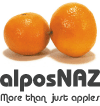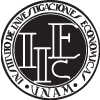Debian and Science
Proposal details:
| Abstract: | As a community project with a diverse developer body, Debian has always been the distribution which included the most variety of scientific software not being limited by business constraints or a small developer community. While Computer Science, Mathematics and Physics (from now on referenced as "the old three") are traditional fields of endeavours for Debian Developers and users and therefore have seen attention in terms of packaging available Free Software applications since the beginning of the project, other fields of science have been taken care of by only a few individuals until some time ago, e.g. Andreas Tille for debian-med's medical, biological and biomedical applications and Michael Banck for chemistry related applications. Along the same line, researchers and scientists from these fields seemed to be less pronounced among GNU/Linux users than for example Physicists, as the majority of them seems to be coming rather from a Windows background as opposed to the Unix background Physicists or Computer Scientists experienced. As GNU/Linux on the desktop matures and appears on the radar of regular users, scientists from other fields start to use it as well. Some of these will hopefully start helping out and become developers themselves.
Both the installation of the debian-science mailing list in summer 2005 and the rising popularity of the Debian-derived and desktop-centric Ubuntu distribution have increased the participation to Debian development of scientific packages outside of "the old three" fields significantly in recent months. In order to channel these interests and avoid fragmentation between e.g. the Debian and Ubuntu communities, group maintenance should be encouraged wherever possible, as well as taking advance of other facilities developed over the last years: * Group Maintenance through Alioth including the easy sponsoring of non-DDs * The advent and success of easy to use Desktops such as GNOME and KDE * Custom Debian Distribution frameworks make it simple to release specialised versions of Debian for various fields of science The issues for group maintenance of packages from a specific scientific field are slightly different to conventional types of group maintenance e.g. the Debian GNOME team faces. Different package will usually be quite different in their build systems and packaging needs, but work is more easily split up by different people as packages do not tend to depend on each other that much usually. As most scientists in fields other than "the old three" are usually not extensively trained and teached in programming, Free Software in these areas appears to be more bumpy both in terms of installation, maintainability and usability. Regarding installation, a lot of programs ship a simple Makefile at most and do not consider ever to be distributed as part of an operating system. Some rely on environmental variables for correct execution as well. Clearly, the need for improvement can be easily seen and should attract interested volunteers for low hanging fruits. A big issue Debian has come across over the years is the popular use of "almost Free" licenses for scientific applications. In the spirit of sharing research results, a log of scientists have been sharing their source code since the beginning, however, a lot do so with "Academic use only" clauses. The mandatory citation in a scientific publication should a program have been used during the preparation of the research results is also a common clause. This talk will review the current status of scientific software in Debian, with special focus on the upcoming Debichem sub-project and its experience in cooperating with the Ubuntu MOTUScience project. If another talk will be given on a similar topic, a more specific title is possible |
|
| Presentation type: |
|
|
| Track: |
|
|
| Status: |
|
Authors:
Michael Banck



































